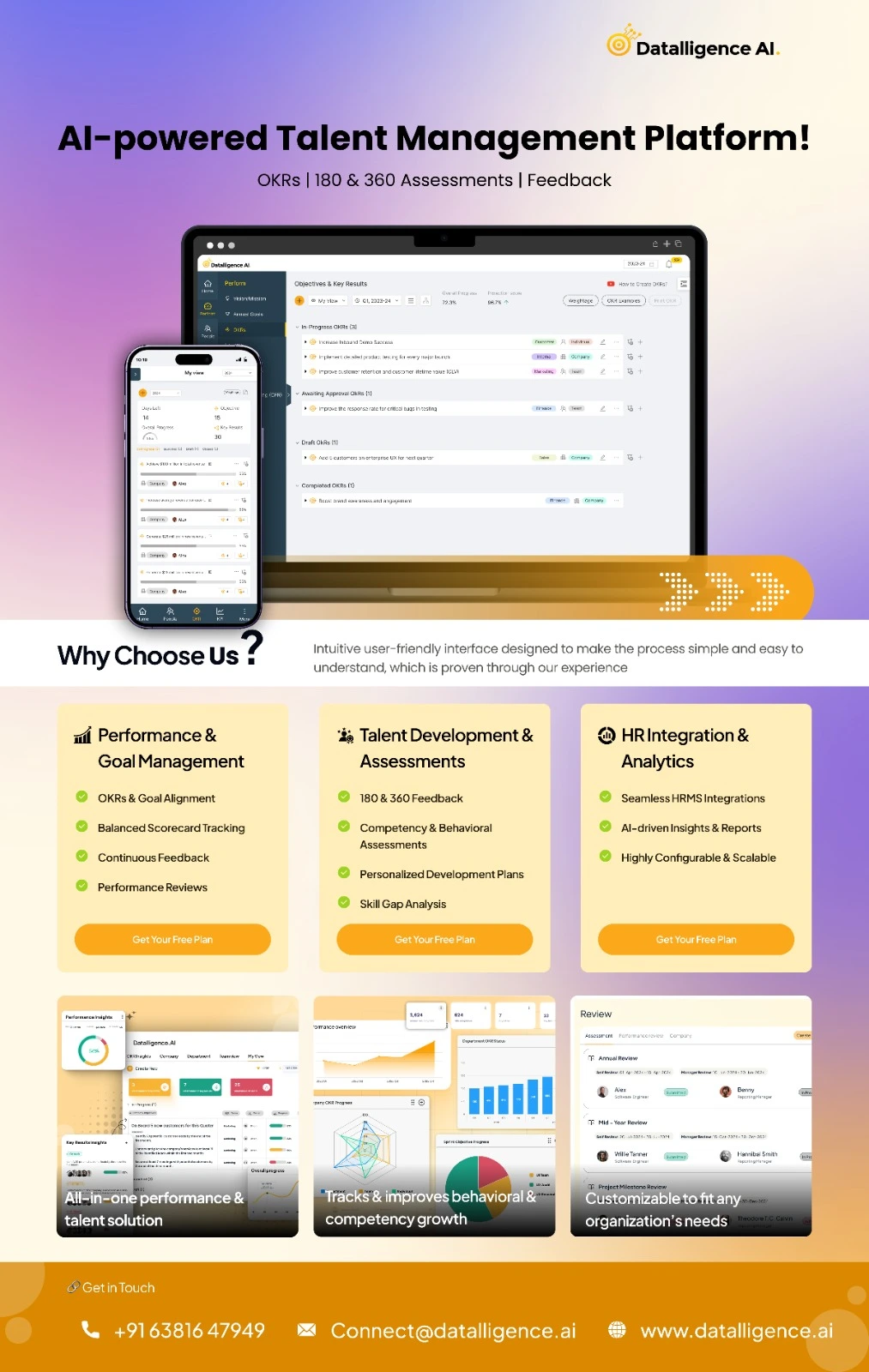What is employee engagement?
A global study finds over 75% of people feel “stuck” personally and professionally. This is the main cause of decreasing employee engagement. Employee engagement is the emotional and professional connection one has towards the role one plays. The more the connection is the better the employee engagement. All single organizations thrive in striking this balance. With the continuous change in the workforce and it is getting dynamic, measuring employee engagement is becoming crucial and unable measure the same.
Why is employee engagement important?
Employee employees are a critical parameter for retaining talent and increasing organizational productivity. Employees who are engaged are likely to stay longer in an organization and stay and keep the team motivated.
Why managers are key to employee engagement?
Disengaged employees cost billions every year. For companies that aspire to grow fast, this is not a simple problem. Organizations across the industry report only 34% engagement. And that is an alarming trend. Great workspaces with Ping-Pong tables are not able to crack the number. Even compensation does not help in creating the change.
The major answer to these problems is the managers who handle the team. They care to make or break the teams. Their significant role is to keep the team motivated and empowered.
The role of managers in employee engagement
Ineffective managers impact employee engagement to a greater extent. According to Gallup, 70% of the variance is caused by the manager and it proves that is an issue of the management. Employees connect to the organization’s vision and values through the manager. Their interactions with the team create a greater influence on employee behaviour.
Great managers play the role of HR (Human Resources) within the team, and they motivate the team and their people to think out of the box. But everything goes wrong if the manager is not right.
Why Should Companies Most Consider the Manager’s Role in Training and Development?
Managers identify the crucial factor of training and development and help the team to understand the importance and insist that the training will help in improving their performance
When planned rightly it helps you to increase the performance and contribute to employee engagement. Organizations invest a lot in training and development, and they expect you to reap the benefits of the training that will in turn help in individual performance.
Most companies measure the ROI of training and development as it is directly proportionate to the increase in productivity.
Managers who are the closest in identifying the gap with the individual and how that impacts their performance. Having seen the impact, they become responsible for driving the training and development of their team
How should managers drive employee engagement?
Result-oriented leaders create an engaged team. Many managers drive behind the efforts and the quantum of work one does then working towards the talented team that owns and delivers what is expected by the organization. But great leaders do both effectively. Unfortunately, there are few left, who can manage both. We can see only 13% of leaders fit this.
Managers should have clear communication with the team and set the goals effectively. They should be another review after the time and efforts are being spent.
Having frequent conversations with the team gives a great deal of understanding of the skills and competencies one must deliver the expected job. Having understood the gaps it would be right to suggest various pieces of training that help an individual bridge the gap. This also increases the trust the team has in the managers and decreases conflicts.
Managers should inculcate accountability in an individual than pushing the deliverables to them. Both sides need to agree on what is expected out of an individual.
How does coaching improve employee engagement?
Training is one aspect and coaching is another crucial factor. Not all managers have equipped to coach the team. Coaching employees drive their performance level high and help them acquire new skills. They also give them visibility on what role they are performing and how that impacts the organization.
We tend to have surprises after hire and the individual does not perform as they claim in papers. Coaching and training will help them to bridge the performance gap.
Coaching help in achieving goals and hence the culture of coaching is important to practice. Investing time and coaching an individual also increases the retention of an employee and thus it becomes extremely critical. Investing time and money in coaching and a goal-oriented platform can create a positive turnaround.
By investing in your employees through coaching, you can help close the skill gaps to reach company goals faster.
Conclusion:
To create a highly effective and productive workplace it is important to have coaching and training plans in place. Organizations should prioritize coaching as they create a highly engaged workforce. Teams eventually increase productivity and performance which helps them in achieving their goals. Creates a bond between the team and creates highly motivated individuals.











